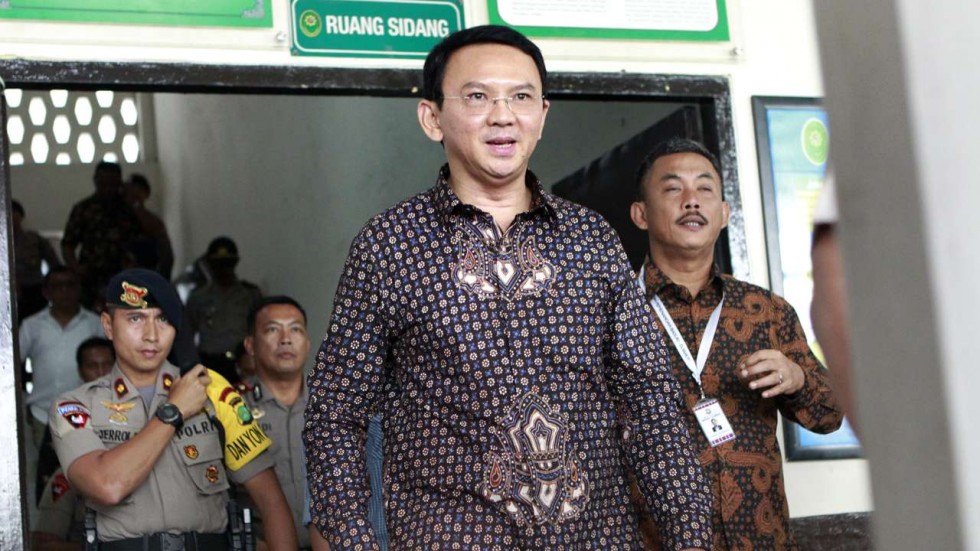ELIZABETH SOELISTIO WRITES – Along with his usual feistiness and candor, former Jakarta governor Basuki “Ahok” Purnama is revealing a new side to his personality: Graciousness. In a letter written from Mako Brimob Prison, read to the media by his tearful wife, Ahok explained why he won’t appeal his recent blasphemy conviction. Bottom line: Staying incarcerated lessens the chance for violence between his supporters and opponents.

Veronica Tan read the letter with tears flowing. “I know that it’s hard for you to accept this, let alone for me. However, I have learned to forgive and accept all of this, if this is for our common good in building the nation and state,” Tan read.
Tommy Sihotang, Ahok’s defense lawyer, expanded on Ahok’s situation, claiming that the blasphemy case has become overly politicized and the consequences of filing an appeal would be dramatic. “Anything could happen in an appeal — including the possible lengthening of the governor’s sentence, which has happened in other appeals to the Jakarta High Court, or clashes between his supporters and opponents.”
Ahok’s letter suggested that his waiver of appeal had less to do with the possibility of a harsher sentence than with the wellbeing of his supporters and country. In the letter, Ahok wrote he was frightened that his supporters would riot against those who supported his sentence.
Although the jail sentence puts into question the independence of Indonesia’s justice system, it also reveals division among Indonesian citizens. As the world’s most populous, Muslim-majority nation, rifts are growing in Indonesia, driven by built-up religious tension from perceptions of conspiracy and inequality.
For Ahok supporters, the former governor’s prosecution is seen as an organized action by political rivals to use ethnicity and religion as powerful, political weapons. As a Christian and ethnic Chinese in Indonesia, it’s not unusual for a double-minority like Ahok to be attacked by his political opponents, particularly fundamentalist Muslims.
Indeed, there is a theory that public pressure from the anti-Ahok and hardline Islamic groups influenced the court’s decision. But apparently looking to dampen such talk, Ahok wrote in his letter, “It’s not right to hold rallies for the process that I should face.”
Despite the religious division, Ahok included references to God in his letter, staying true to his faith and values. “Gusti ora sare,” he wrote in Javanese. “God does not sleep.”

